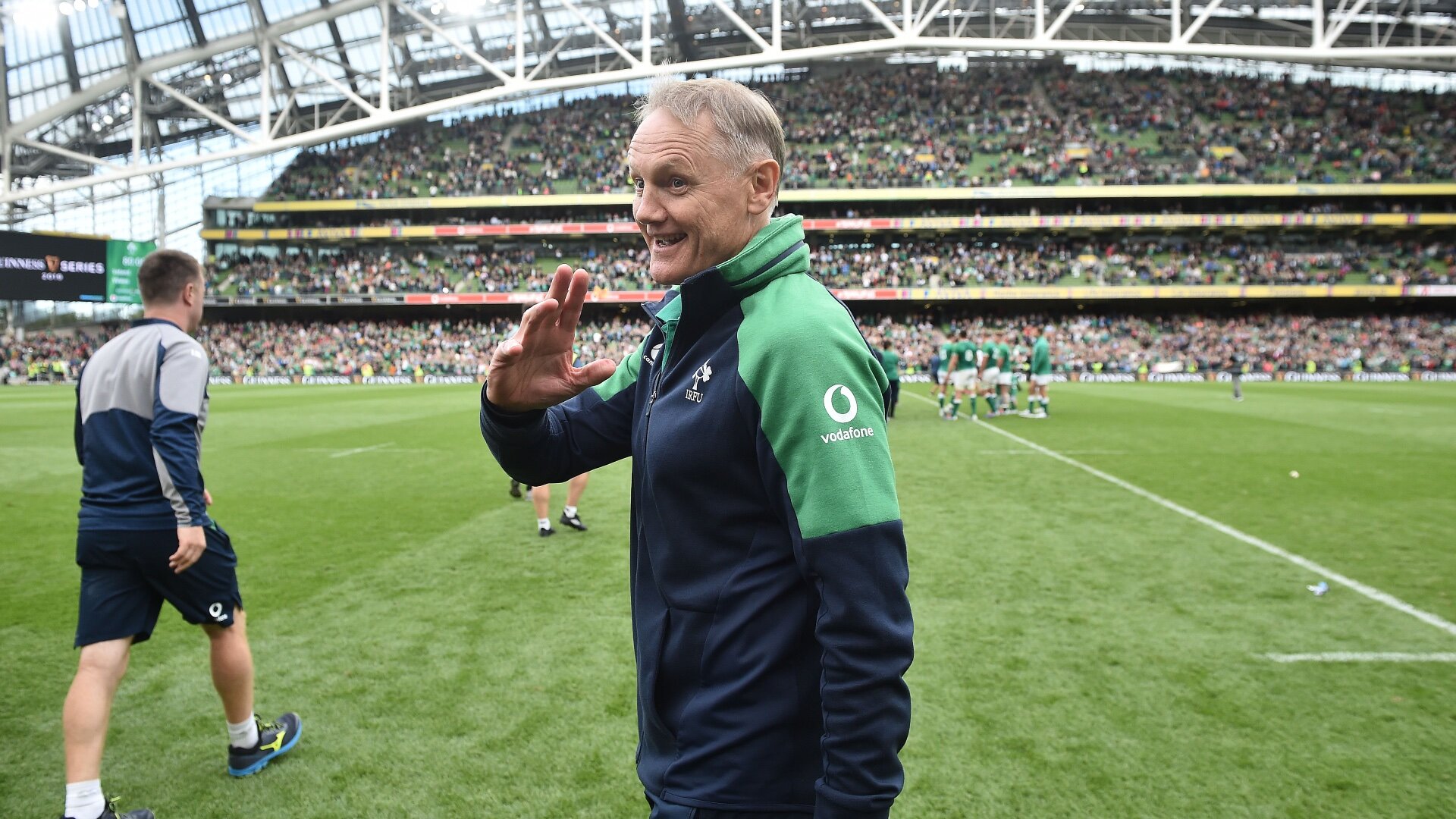Standing ovation as Schmidt signs off from Dublin with eye-watering home fortress statistics

Not bad for a Kiwi working overseas, not bad at all. There was Joe Schmidt on the Aviva Stadium pitch at one minute past four on Saturday afternoon, taking a rapturous standing ovation from the crowd who gustily roared their approval for all the transformative work he has done for Irish rugby these past nine years.
It’s quite the story. He arrived a stranger in 2010 but is departing a household name, as Dublin as any feted local you’d like to pick, from Bono to Behan and every other colourful character in between.
It won’t be until the World Cup in Japan when his epitaph is written. Ireland aspire to create some history at the tournament in the Far East and Schmidt, still smarting from how it all fell apart at England 2015, knows he has it all to do to get that gigantic task over the line.
But his legacy in Dublin is secure, Saturday’s win over Wales seeing him depart with some eye-watering figures to his credit for matches held in the Irish capital, not just with his adopted national team these past six years but also from his time at Leinster from 2010 to 2013.
Between Ireland green and Leinster blue, Schmidt has been in charge for 86 matches in Dublin, emerging victorious on a thunderous 75 occasions.
In Pics: An emotional farewell for Joe Schmidt and Rory Best on their last game in Aviva Stadium. Tale a look at the photo gallery of the day.#ShoulderToShoulder #IREvWAL https://t.co/OOEuKlXrgB
— Irish Rugby (@IrishRugby) September 7, 2019
He’s a serial winner, knows what it takes and it’s no surprise Warren Gatland sounded cheesed off in the aftermath of Saturday’s last hurrah. Yet another visiting coach had just been forensically turned over, an outcome that on this occasion lifted Ireland to the No1 World Rugby ranking ahead of the World Cup.
His fellow Kiwis might scoff at that status arriving just a few weeks following that embarrassing record low suffered at Twickenham, but no one can question the consistency of his work at Fortress Aviva.
In Schmidt’s 34 Test matches in Dublin, Ireland have only given second-best five times. Australia, New Zealand twice, Wales and England. There has been one draw and 28 Tests win – a buoyant 83.8 per cent success rate. Move the dial on to Leinster and the figures are even more impresisve. Just five times in three seasons were Schmidt’s Leinster defeated in their Aviva Stadium/RDS back yard, a success rate of 90.3 per cent.
The situation routinely became that when you went and watched a Schmidt team at home there was every likelihood that you would leave with a smile, depart with the sweet taste of success. That is quite an achievement, especially at Test level as that wasn’t always the case at the Aviva Stadium.
Ireland won just six of their first 15 matches at the redeveloped ground when it initially reopened for business in 2010, a run of results that led to Schmidt succeeding Declan Kidney.
The all-seater Aviva had been a shadow of the rough and ready, old Lansdowne Road it had replaced, its atmosphere limp and the crowd more interested in where the next beer was coming from rather than anything happening on the pitch.
Schmidt wasn’t naive enough not to notice the disconnect and repairing that relationship has been one to his biggest successes. “Supporters want an emotional attachment,” he said on taking the reins six years ago.
“It’s what competitive sport lives and dies by and you get an attachment because of the effort you see, the excitement that is created, the tension that exists. All those things go together.
How the winning Ireland players rated in beating Wales in Dublin https://t.co/4aTyv3LblV
— RugbyPass (@RugbyPass) September 7, 2019
“I don’t have the answer to all that [the disconnect some Ireland fans felt] but that is as honest a perception I can give about supporters and my emotional attachment to rugby… we want people to get excited about getting along to Test matches.”
This he did in spades, the rumbustious roar that greeted him on the pitch on Saturday a fitting send-off from Schmidt’s home from New Zealand home. His voice croaked in accepting the acclaim. “The last nine years I have been lucky to be involved with such a fantastic bunch… I’ve great people around me.”
That might be true, but they wouldn’t have achieved greatness without Schmidt leading the way. Not bad for a Kiwi working overseas. Not bad at all.
SCHMIDT BY NUMBERS
With Ireland in Dublin – P34 W28 D1 L5 83.8 per cent success rate
With Leinster in Dublin – P52 W47 L5 90.3 per cent success rate
Overall in Dublin – P86 W75 D1 L10 87.7 per cent success rate
WATCH: The RugbyPass trailer for the new World Cup documentary with the Tongan national team























































